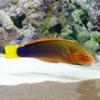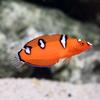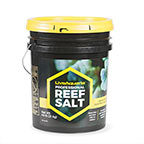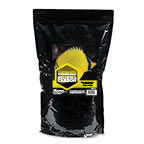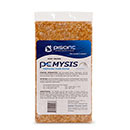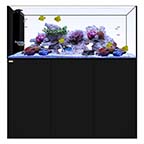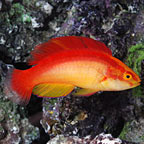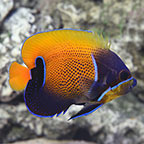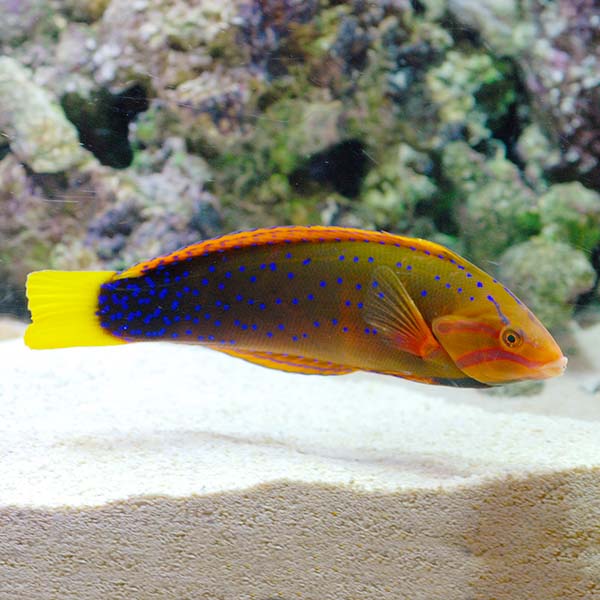
Additional locales and sizes may be available!
Additional locales and sizes may be available! Email me when availableQuick Stats
What do these Quick Stats mean? Click here for more information
What do these Quick Stats mean? Click here for more information
Overview
The Red Coris Wrasse requires a 125 gallon or larger aquarium with a sandy bottom into which it will burrow to sleep, or if it is threatened. Do not attempt to keep the Red Coris Wrasse on crushed coral or similar substrate as they have a poor survival rate on such substrates. When very small, Red Coris are safe with almost any fish that will not eat them, but as they grow, they can become destructive. They should not be kept with invertebrates.
The Red Coris Wrasse diet should include vitamin enriched frozen mysis shrimp, vitamin enriched frozen brine shrimp, and other meaty foods along with a high quality marine flake and marine pellet food.
Approximate Purchase Size: Juvenile Small: 1" to 1-3/4"; Juvenile Medium: 1-3/4" to 2-1/2"; Juvenile Large: 2-1/2" to 3-1/2"; Adult: Small: 1-1/2" to 2-1/2"; Small/Medium: 2-1/2" to 3-1/4"; Medium: 3-1/4" to 4"; Medium/Large: 4" to 5"; Large: 5" to 6"; XLarge: 6" or larger


